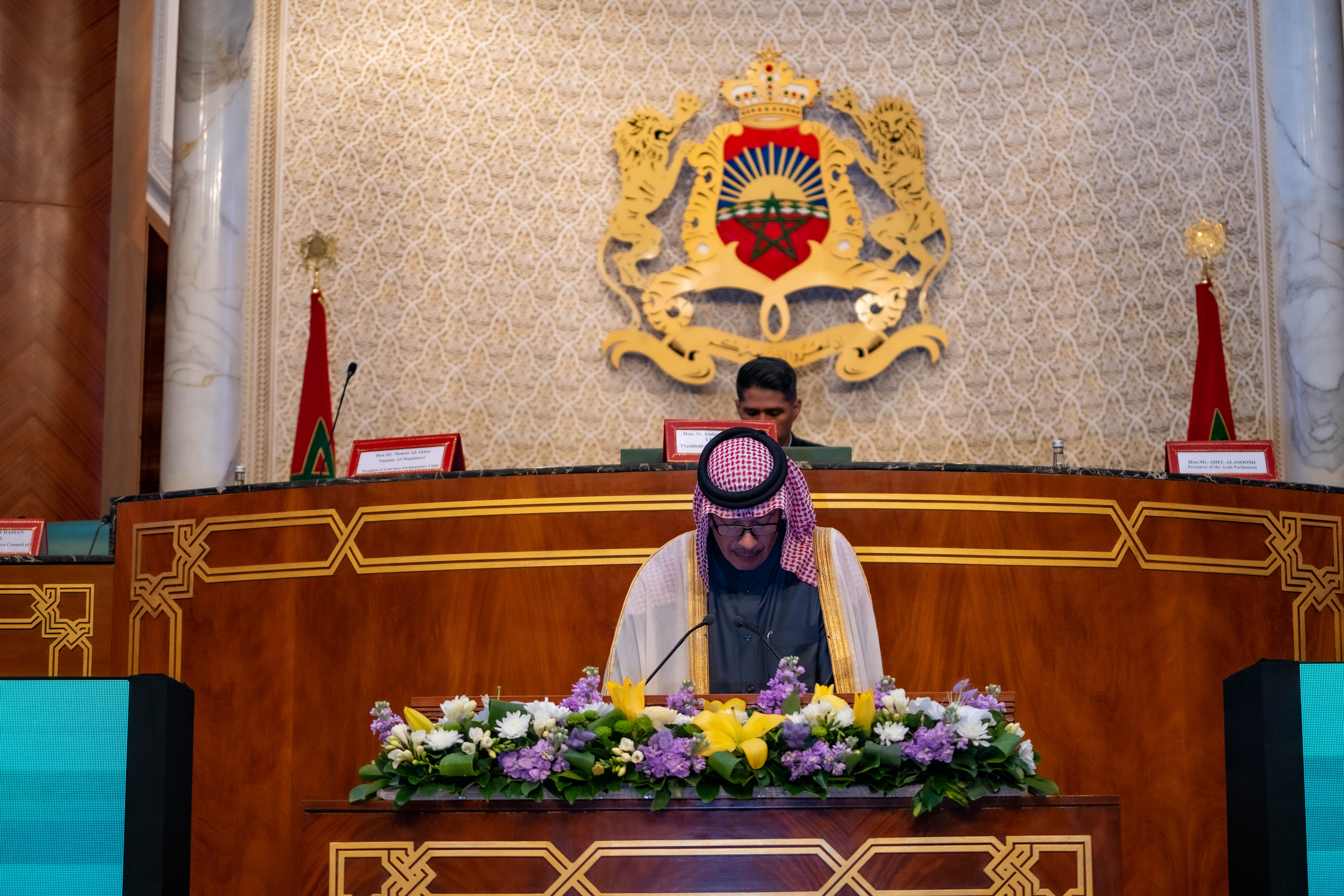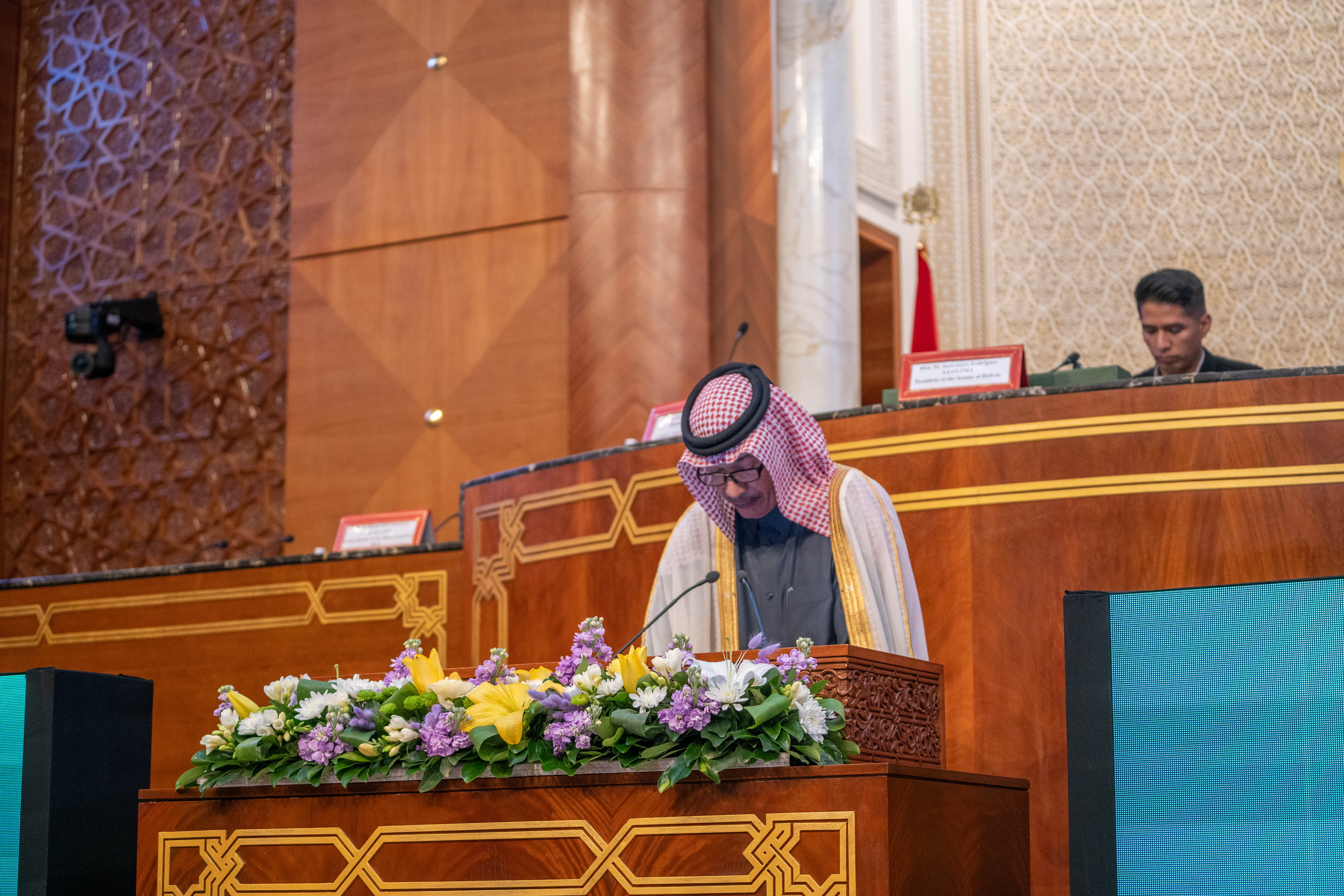The Shura Council affirms that Qatar's Vision 2030 achieves all sustainable development goals
16 February 2024
The participation of the Shura Council delegation continued for the second day in the Parliamentary Conference on South-South Cooperation, held in the Moroccan capital, Rabat, and its work concludes today. His Excellency Mr. Issa bin Arar Al Rumaihi, member of the Shura Council and member of the Council’s delegation participating in the conference, participated in the “Sustainable Development - Energy - Environment Tripartite” session.
In his interventions during the session, His Excellency stressed that the concept of sustainable development is based on meeting the needs of the current generation without prejudice to the capabilities of future generations and meeting their needs, and achieving a balance between economic growth, environmental preservation, and social cohesion, in order to avoid the negative environmental impacts of economic growth and globalization that resulted from Intensive industrial activity and increasing population growth during the 1970s.
His Excellency summarized the seventeen sustainable development goals in providing food, water, health, education and work, equality and a sound environment. Its characteristics include sustainability by conserving resources, using renewable energy, and reducing global warming. He said that to achieve these goals, countries, relevant international organizations and United Nations entities have adopted an action plan to achieve the sustainable development goals by 2030.
His Excellency also pointed out that all of these goals are implicitly achieved through Qatar National Vision 2030, which is based on four basic pillars: human development, economic development, social development, and environmental development, which achieves well-being for all segments of the population, including citizens and expatriates. His happiness praised the FIFA World Cup Qatar 2022, which was hosted by the State of Qatar and was considered the best edition in the history of the World Cup tournaments, pointing out that “it is considered the first World Cup tournament that is carbon-sensitive in its facilities, lighting, and gardens. It took into account all the foundations of sustainable development, especially conservation.” On the environment, as solar energy, renewable energy, and water recycling were used, which contributed to the success of this important event and preserved a healthy, clean environment.”


